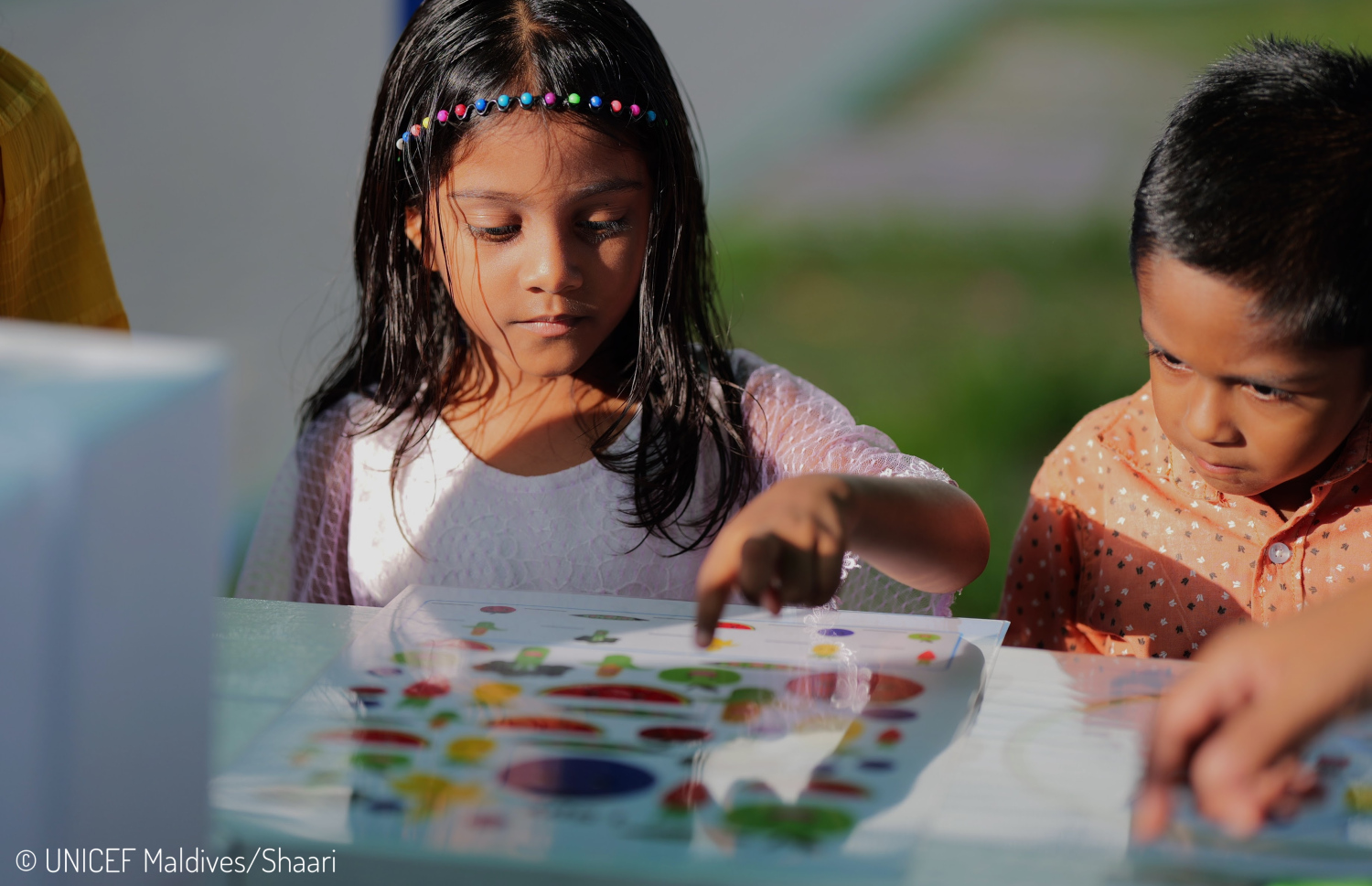Maldives has emerged as a leader in South Asia in advancing children’s rights and well-being. With universal access to both primary and secondary education, the Maldives leads by example. The healthcare system offers universal access and boasts an impressive immunization coverage rate of 99%, protecting children against preventable diseases.
The country’s robust social protection system and strong legislative framework including the Child Rights Protection Act (19/2019), the Juvenile Justice Act (18/2019), and the Education Act (9/2020) demonstrate the Government’s unwavering commitment to building a society where every child can learn and thrive.
However, as Maldives experiences rapid socioeconomic development, new and complex challenges, what we call 'second-generation' or adolescent challenges are emerging. These are not simply gaps in access, but deeper, structural issues that require urgent, innovative and
collective action.
The transition from lower to upper secondary school and the barriers to inclusion of children with disabilities and children with complex learning profiles remain key bottlenecks, often leaving young people without a clear path forward.
Today, 1 in 5 young people in the Maldives is not in education, employment, or training (NEET). This disengagement increases risky behavior and even conflict with the law. At the same time, violence against children continues to increase, with many cases going unaddressed due to stigma, lack of awareness and limited implementation of the protection services outlined in the legislations.
Childhood obesity is also on the rise, putting children at risk of early-onset non-communicable diseases such as diabetes and cardiovascular conditions. And increasingly, young people are grappling with anxiety, depression, and emotional distress in silence.
These issues are further compounded by the changes to family dynamics such as the need for both parents or caregivers to join the workforce to make ends meet, the worsening impacts of climate change threatening the very existence of the island nation, and the economic vulnerabilities that could impact children’s right to heath, education and protection.

As we mark National Children’s Day, the Maldives now stands at a crossroads.
We can either allow these second-generation challenges to undermine the remarkable progress made, or we can confront them head-on. Sustaining our achievements requires more than just preserving services. It means innovating and evolving services and systems to meet the unique needs of children and young people in a rapidly changing world.
Today and every day, let us commit not only to celebrating the gains of the past but to acting decisively for the future. Let us work together to:
1. Safeguard and promote children’s rights as enshrined in in the UN Convention on the Rights of the Child (CRC) and national laws.
2. Sustain the progress made in ensuring basic health, education and protection services and work on enhancing the quality and inclusion of social services with a focus on children with disabilities.
3. Respond to the ongoing challenges with adolescence in the country including transition from lower to upper secondary education, violence against children, deviant behaviors, increasing number of children in conflict with the law and mental health issues.
4. Develop child- and youth- sensitive climate policies and build climate-resilient infrastructure and social services.
UNICEF has stood alongside the Government and people of the Maldives for over four decades. We are proud of the journey we have shared. But we are even more committed to the road ahead—one that ensures every child, in every island of Maldives has the opportunity to
thrive.
Because as the world enters a new era where many children are caught in conflict and hardship, our children deserve more than just promises. They deserve action. They deserve results. And they deserve a future that is brighter and safer.
We are here to support, until we reach the very last mile.
“Komme kujjakah, fahi maadhama eh”
(For Every Child, A Bright Future)